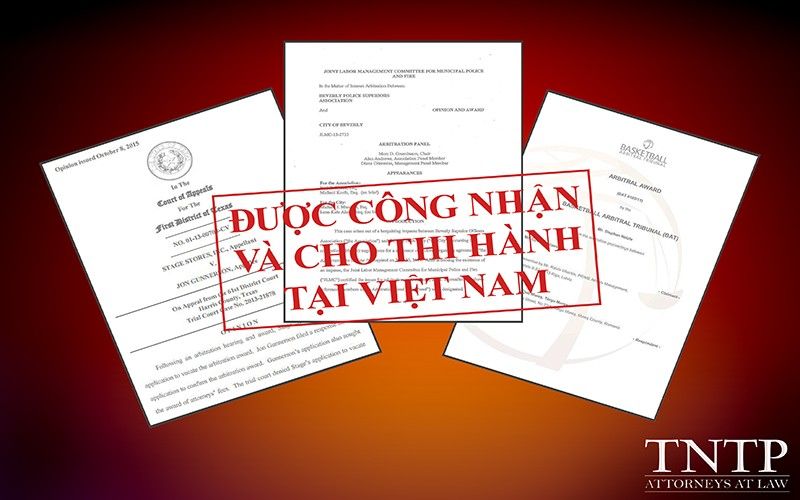Legal service support clients to request the court to recognize and enforce the foreign court’s judgment, civil decision, the foreign arbitration’s award in vietnam

I. When is it required to recognize and enforce foreign Court’s judgment, civil decision, foreign Arbitration’s award in Vietnam?
Pursuant to Clause 1 Article 432 and Clause 1 Article 451 of the Civil Procedure Code 2015, within 03 years, from the date that the foreign Court’s judgment, civil decision, the foreign Arbitration’s award has legal effect, the judgment creditor, the person having related legal rights and interests or legal representative of them has the right to send the Application of request to recognize and enforce the foreign Court’s judgment, civil decision, the foreign Arbitration’s award in Vietnam.
II. Why is it necessary to request to recognize and enforce the foreign Court’s judgment, civil decision, the foreign Arbitration’s award in Vietnam?
According to the laws of Vietnam, the foreign Court’s judgment, civil decision, and the foreign Arbitration’s award only have legal effect abroad and are adjudicated under the foreign law but not automatically be recognized and enforced in Vietnam.
Therefore, to request the enforcement agency in Vietnam to enforce, coerce the obliged party to perform the foreign Court’s judgment, civil decision or the foreign Arbitration’s award, the judgment creditor, the person having related legal rights and interests has to sent application to Vietnam Ministry of Justice to request to recognize and enforce the foreign Court’s judgment, civil decision, the foreign Arbitration’s award in Vietnam.
III. What do Clients need to prepare before working with TNTP?
To gain your goal, before working with TNTP, Clients need to prepare information, documents as follows:
- The foreign Court’s judgment/ civil decision or the foreign Arbitration’s award that has legal effect;
- Information of the judgment debtor: residential address, head office, place of work, information on assets of the judgment debtor (if any), …
- Other related documents (if any).
IV. How does TNTP receive and process information?
When Clients contact TNTP, TNTP’s Lawyers will receive and process information as follows:
- Step 1: Based on the information, documents provided by Clients as well as discussions with Clients, Lawyers of TNTP will research the case and give some initial consultation.
- Step 2: Then, TNTP will send a Quotation attached to a detailed implementation Plan to Clients so that Clients can consider signing Legal Service Agreement with TNTP.
- Step 3: In case Clients agree with the Quotation, TNTP will send a Legal Service Agreement to Clients. The Parties will sign Agreement and Clients will pay legal services fee to TNTP (if any).
Kindly be noted that the legal service fees of TNTP are exclusive of Value Added Tax, court fees, arbitration fees, fees according to state regulations, travel expenses for lawyers, translation, photocopying, notarization, and authentication fees, long-distance telephone, postage charges, and other reasonably incurred expenses. In case the above-mentioned expenses are incurred, TNTP will propose opinions to Clients and TNTP will only perform the work if Clients agree to pay reasonably incurred expenses.
After signing the Agreement and receive service fees (in case there is a fixed service fee), TNTP will perform works according to the Quotation and the implementation Plan that Clients has agreed.
V. TNTP’s commitment to legal service
With the attitude of protecting the legal rights and interests of the Client, TNTP has been and will try to bring Clients trust and comfort when using TNTP’s legal services.
Throughout the process of providing legal services, TNTP commits to support Clients and perform the work in the fastest, most timely and effective way, regularly report the progress of the case as well as give the next plan so that Clients can easily monitor and evaluate the work results.



